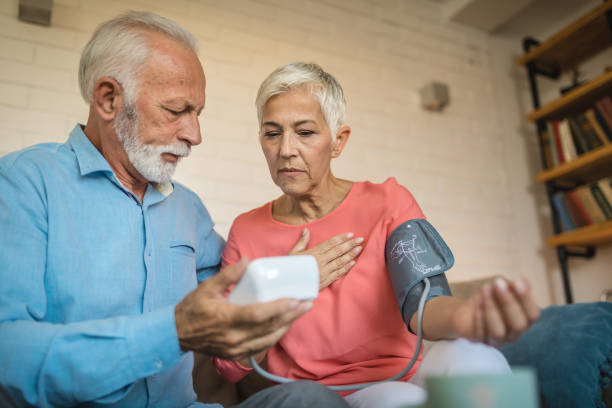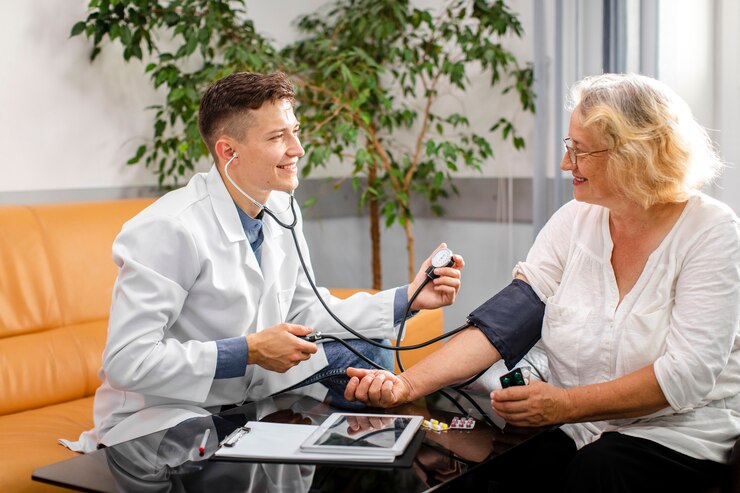Heart disease is the number one cause of death in the United States. Many people over 30 worry about heart health, especially if they feel tired, stressed, or have a family history of heart problems. The good news is: if you know the early signs, you can get help sooner and live a better life.
Why Heart Disease Is a Big Problem for Adults
As we get older, the risk of heart disease goes up. This is because of things like high blood pressure, high cholesterol, stress, and not enough exercise. Many people think small aches or tiredness are just from getting older, but they can be warning signs (American Heart Association).
Early Warning Signs You Should Not Ignore

1. Chest Pain or Pressure
This is the most common sign. You may feel pain, pressure, or tightness in your chest. It may come and go, or last for a few minutes. Dr. Deepak L. Bhatt from Harvard Medical School says, “Even mild or short chest pain can be a sign of heart trouble” (Harvard Health).
2. Shortness of Breath
If you feel out of breath when you walk or climb stairs, this could be an early sign of heart disease (Mayo Clinic).
3. Feeling Very Tired
If you feel tired all the time, even after a good night’s sleep, your heart might not be working well. This is often seen in women, but men can feel it too (Cleveland Clinic).

4. Pain in Arm, Back, Neck, or Jaw
Heart pain does not always happen in the chest. You may feel pain in your arm, back, neck, or jaw. Dr. Steven Nissen from Cleveland Clinic says, “Heart pain can be in many places, not just the chest” (Cleveland Clinic).
5. Irregular Heartbeat
If your heart skips a beat, feels like it is racing, or you feel fluttering in your chest, this could be a warning sign.
6. Swelling in Feet or Ankles
If your feet or ankles swell up, your heart may not be pumping blood as it should. This is called edema.
7. Dizziness or Fainting
Feeling dizzy or like you might pass out can mean your heart is not sending enough blood to your brain.
Why Do People Miss These Signs?
Many people think these signs are just part of getting older, or they are too busy to see a doctor. But experts say you should listen to your body. Getting help early can save your life.
What Should You Do?
- See your doctor if you have any of these signs, even if they are mild.
- Write down when you feel these symptoms and what you were doing.
- Check your blood pressure, cholesterol, and blood sugar often.
- Make healthy changes: Eat more fruits and veggies, exercise more, quit smoking, and try to relax.
The American Heart Association says even small changes, like walking 30 minutes a day, can lower your risk (American Heart Association).

How to Keep Your Heart Healthy
- Eat healthy foods like whole grains, lean meats, and lots of fruits and vegetables.
- Move your body every day.
- Keep a healthy weight.
- Limit salt and sugar.
- Don’t smoke.
- Find ways to relax. You can try deep breathing, stretching, or using products like nasal sticks or aromatherapy to help you feel calm.
When to Call 911
If you have chest pain that does not go away, pain in your arm or jaw, or trouble breathing, call 911 right away. These can be signs of a heart attack.
Key Points
- Heart disease can start with small signs like chest pain, tiredness, or swelling.
- Don’t ignore these signs. Talk to your doctor.
- Simple changes can help your heart stay strong.
- Products like nasal sticks, aroma oils, and exercise tools may help you relax and keep a healthy lifestyle.
References
- American Heart Association – Heart Attack Symptoms
- Mayo Clinic – Heart Disease Symptoms
- Cleveland Clinic – Heart Disease
- Dr. Deepak L. Bhatt, Harvard Medical School, Harvard Health
- Dr. Steven Nissen, Cleveland Clinic, Cleveland Clinic
Remember: Listen to your body, make healthy choices, and talk to your doctor if you notice any warning signs. Your heart will thank you!


